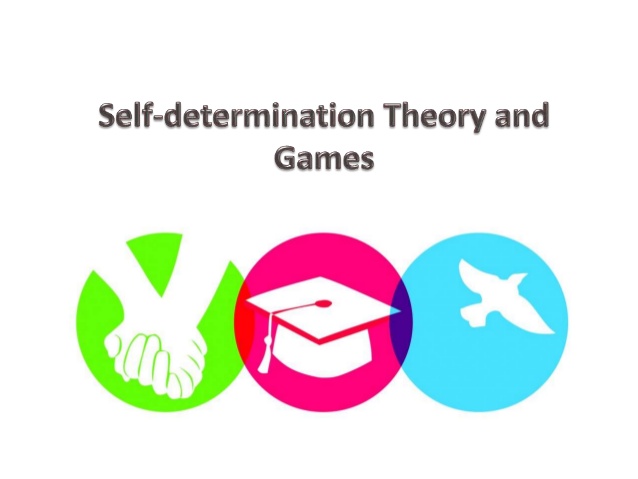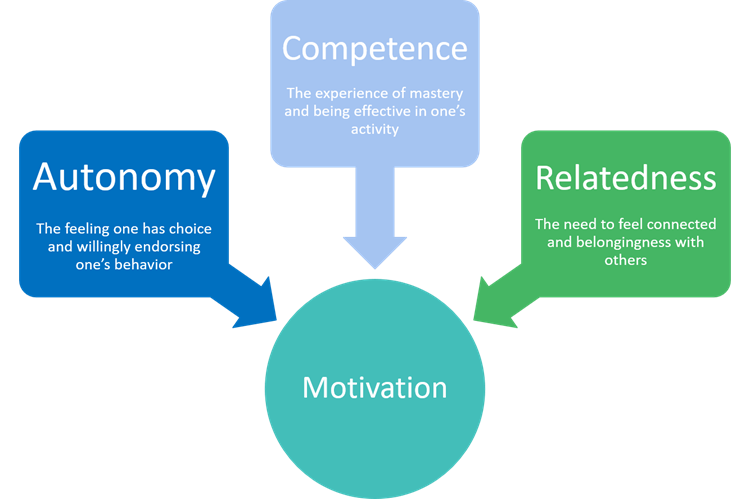The use of digital games for educational purposes has been associated with higher levels of motivation amongst learners. For instance, in a review of more than 70 empirical research studies in the use of digital games in the classroom, the most observed outcomes were motivation and learning. However, the underlying mechanics of digital game-based learning have rarely been analyzed according to Jean-Nicolas Proulx, Margarida Romero, and Sylvester Arnab, who studied the issue from the perspective of self-determination theory.
Digital games have been noted by researchers to be intrinsically motivating for many people. For that reason, there is a lot of academic interest in utilizing their motivational potential in an academic context to improve learning. Educational psychologists have issued warnings about the assumption that technology, such as the use of video games, fosters learning by itself. So deeper analysis of what exactly drives motivation in the use of technology is in order. In their attempt to address this issue, the authors link this motivational pull of video games to two theories: the self-determination theory and flow theory. Autonomy and competence are key factors of digital games and core components of self-determination theory. Flow theory, on the other hand corresponds to concept of immersion in video games.
Self-determination theory is motivational theory concerned with the innate psychological needs of humans. It states that there are three key factors that are central to positive growth and motivation; autonomy, competence and relatedness. Autonomy means that people have a desire to be in control of their lives, to have a sense that things are in their control. Competence means that people have a desire to control the outcome of their actions and experience mastery over tasks. Relatedness means that people want to be connected to others and share experiences. The theory states that if these base psychological needs are met, a task becomes motivating.
Self-determination theory has been linked to flow theory. Flow theory is a concept that can be defined as a complete state of cognitive absorption or engagement in a task, in which the individual is not affected by thoughts or emotions unrelated to the task. In video game terms, flow state occurs when the player is so immersed in a game, that they don’t pay attention to anything else around them. Two different studies from 1999 and 2005 found that participants who had a self-determined motivation reached the highest states of flow experience, and that students with higher self-determined motivation were more likely to reach a flow experience and be deeply engaged in their task.
The authors posit that game-based learning should follow the guidelines of self-determination theory to induce a flow state to maximize motivation. Thus in order to develop the learners’ motivation the game-based learning activity should be in coherence with four requirements of the player activity: the students’ goals (requirement 1), students’ feeling of autonomy (requirement 2), competence (requirement 3) and relatedness (requirement 4) within the game. According to self-determination theory, if these four requirements are met, then the game should foster autonomous motivation.
Image sources:
https://www.urmc.rochester.edu/community-health/patient-care/self-determination-theory.aspx
Original article: https://journals.sagepub.com/doi/abs/10.1177/1046878116674399?journalCode=sagb
You might also like
More from Game Research Highlights
How do you want to do this? – A look into the therapeutic uses of role-playing games
Can playing RPGs contribute positively to your wellbeing? A recent study aims to find out how RPGs are being used …
Eldritch horrors and tentacles – Defining what “Lovecraftian” is in games
H.P. Lovecrafts legacy lives today in the shared world of Cthulhu Mythos and its iconic monsters. Prema Arasu defines the …
Are Souls Games the Contemporary Myths?
Dom Ford’s Approaching FromSoftware’s Souls Games as Myth reveals the Souls series as a modern mythology where gods fall, desires …

















